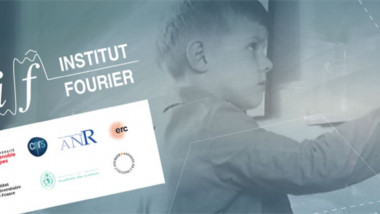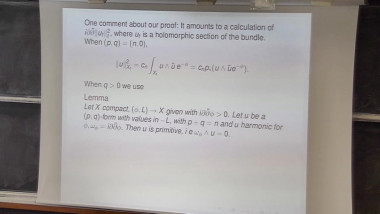Exact inference for a class of non-linear hidden Markov models on general state spaces
Appears in collection : Séminaire Parisien de Statistique
Filtering hidden Markov models, or sequential Bayesian inference on the hidden state of a signal, is analytically tractable only for a handful of models. Examples are finite-dimensional state space models and linear Gaussian systems (Baum-Welch and Kalman filters). Recently, Papaspiliopoulos et al. ([1], [2]) proposed a principled approach for extending the realm of analytically tractable models, exploiting a duality relation between the hidden process and an auxiliary process. Then, the solution of the filtering problem consists in a finite mixture of distributions. We study the computational effort required to implement this strategy for two parametric and nonparametric models: the Cox-Ingersoll-Ross process, the K-dimensional Wright-Fisher process, the Dawson-Watanabe process and the Fleming-Viot process. In all cases, the number of components involved in the filtering distributions increases rapidly with the number of observations. Although this could render the algorithm impractical for long observation sequences and undermine its practical relevance, the mathematical form of the filtering distributions suggest that the number of components which contribute most to the mixture remains small. This suggests several efficient natural approximation strategies. We assess the performance of these strategies in terms of accuracy, speed and prediction, benchmarked against the exact solution.
[1] O. Papaspiliopoulos and M. Ruggiero, “Optimal filtering and the dual process,” Bernoulli, vol. 20, no. 4, pp. 1999–2019, 2014.
[2] O. Papaspiliopoulos, M. Ruggiero, and D. Spano, “Conjugacy properties of time-evolving Dirichlet and gamma random measures,” Electron. J. Stat., vol. 10, no. 2, pp. 3452–3489, 2016.












